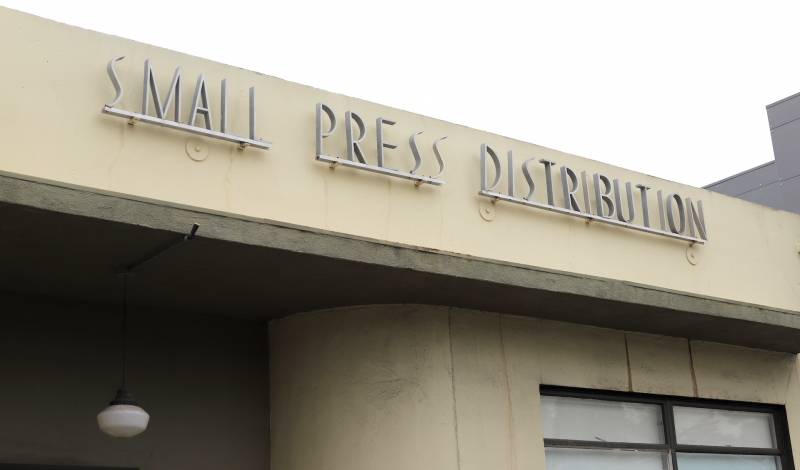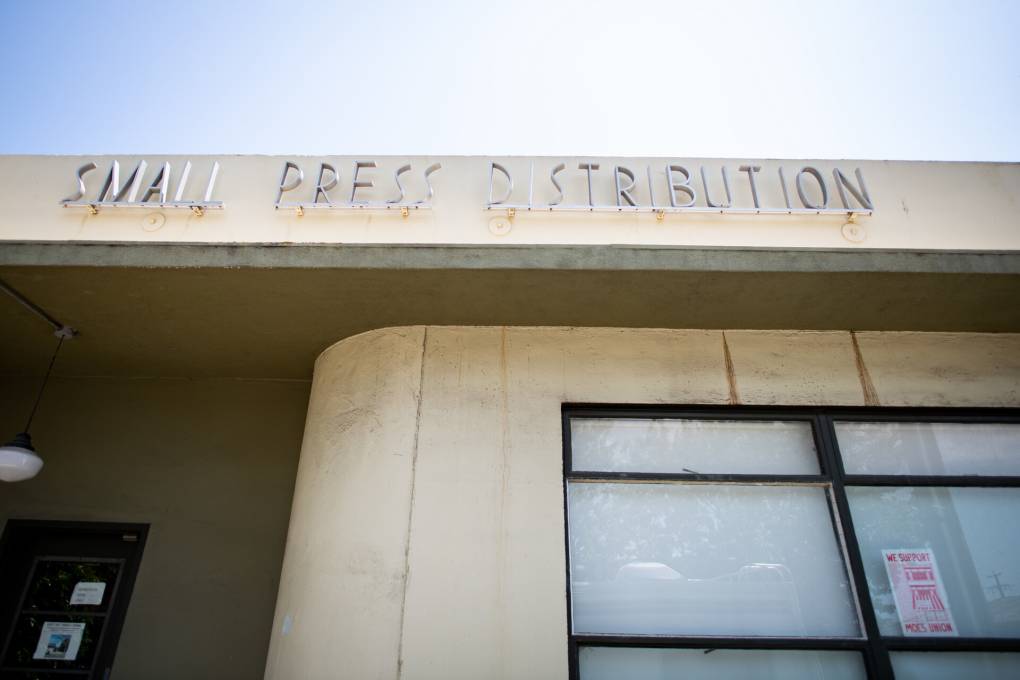Updated Friday 6 p.m.
Small Press Distribution (SPD), the 55-year-old nonprofit literary distributor, has closed its doors effective immediately. A reduced team is winding down business operations.
“We know this news is both sudden and devastating,” read the March 28 announcement on the SPD website. “Several years of declining sales and the loss of grant support … have combined to squeeze our budget beyond the breaking point.”
In February, SPD completed the move of over 300,000 books from their Berkeley warehouse to facilities run by Ingram Content Group in Tennessee and Publishers Storage and Shipping in Michigan. This was part of an effort, according to Publisher’s Weekly, to cut operating costs while increasing services for the some 400 publishers who use SPD’s distribution services.
The nonprofit had raised more than $100,000 in a GoFundMe to support the move, and earlier this year SPD launched yet another fundraiser to help it focus on expanding print-on-demand, eBooks, and global distribution. Donations were still coming in this week.
“Despite the heroic efforts of a tireless staff to raise new funds, find new sales channels for our presses, and move from our outdated Berkeley warehouse, we are simply no longer able to make ends meet,” said Kent Watson, SPD’s executive director.
Founded in 1969, SPD is the only nonprofit literary distributor in the country. It distinguished itself as a place that helped indie publishers to get experimental, avant-garde works into the hands of booksellers and customers across the country.

“Against all odds, a tiny distribution service in the back of Berkeley’s Serendipity Books grew to help authors attain some of the literary world’s crowning achievements,” the announcement says. “SPD-distributed authors won multiple National Book Awards, Pulitzer Prizes, MacArthur ‘Genius’ Grants, PEN Awards, Lambda Literary Awards — nearly 100 awards since 2019 alone.”
Poet Jean Day, who worked at SPD in the late 1970s and served as its director beginning in 1983, said the end of SPD is a blow. SPD introduced her to the poetry world during an era when the Bay Area was one of the centers of small press publishing.
Now, it will be a lot harder to get small presses into libraries and bookstores, Day said.
SPD survived for decades through shrinking arts funding, the decline in independent bookstores, the rise of the internet, and the domination of the book market by Amazon.
“Publishing poetry especially, but any kind of non-mainstream literature, is never going to attract the numbers that make publishing possible,” Day said. “I don’t mean profitable, I mean even possible to break even.”
In recent ears, SPD has been rocked by instability and controversy. Watson, the current executive director, was hired in 2022 following an 18-month period of uncertainty after the resignation of Brent Cunningham. Cunningham’s tenure was cut short after accusations of discrimination and wage theft.
Despite efforts to raise new funds, SPD simply couldn’t afford to go on: “SPD lost hundreds of thousands in grants in the past few years as funders moved away from supporting the arts.”
SPD had lost $125,000 in annual grants in the past year from half a dozen institutions, the nonprofit said, and the warehouse shift also took longer and cost more than expected, straining its financial resources even more.



